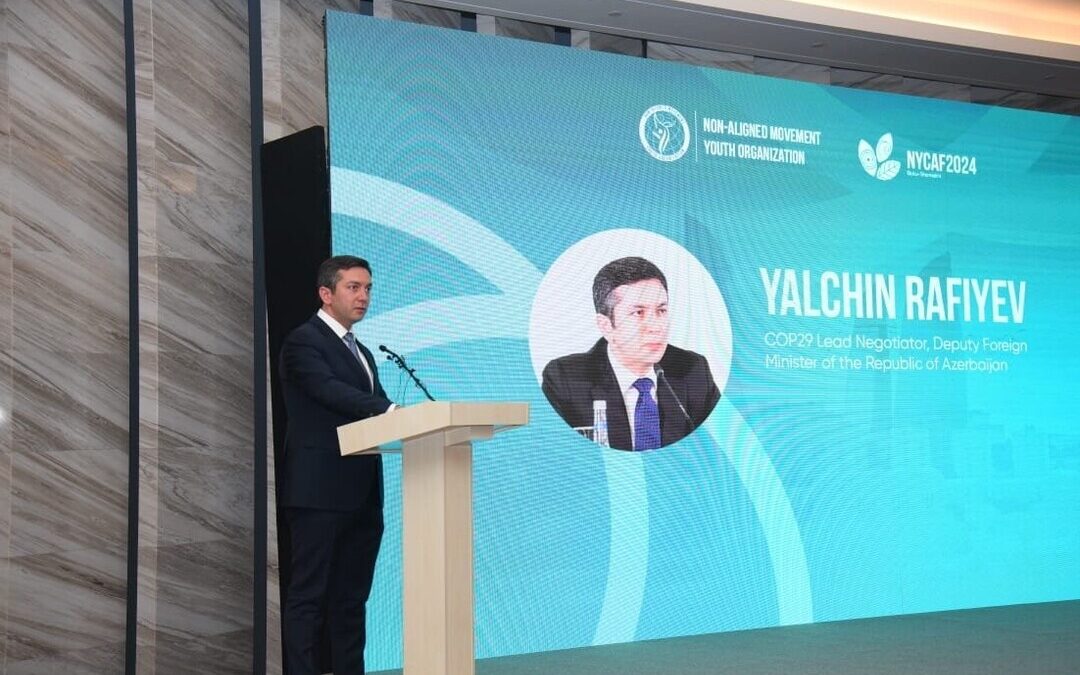COP29 Secures First Major Win with Adoption of Carbon Credit Standards
Global leaders at COP29 achieve breakthrough on carbon markets, unlocking funds to accelerate climate action in developing nations.
On Day 2 of the COP29 climate summit in Baku, negotiators achieved a key milestone by setting international standards for a UN-administered carbon market.
This consensus, which resolves years of negotiations over Article 6 of the Paris Agreement, paves the way for a global carbon trading system to accelerate climate action in developing countries.
Yalchin Rafiyev, COP29 Lead Negotiator, confirmed that participating nations had formally agreed to adopt guidelines for carbon crediting projects and mechanisms for ongoing standard updates, an agreement he described as “a game-changing tool” for channeling resources toward emission-reduction projects in low-income countries.
“The breakthroughs in Baku have now begun,” Rafiyev announced. “This will help save up to $250 billion a year in implementing climate plans.”
Access to Carbon Markets
The standards for Article 6.4, an essential component of international climate policy, will streamline access to carbon markets for developing nations, allowing them to raise funds by selling carbon credits to offset emissions elsewhere.
This tool, officials said, is intended to help countries meet their climate goals faster and at lower costs. A series of leader-level summits, including one on methane emissions, will follow to solidify the summit’s agenda further.
Simon Stiell, UN Climate Change Executive Secretary, hailed the breakthrough as an essential step toward mobilizing global climate finance. “Climate action is global inflation insurance,” he noted, underscoring the severe economic toll of climate change.
He emphasized that comprehensive action from all nations is critical to stave off rising inflation and secure livelihoods amid intensifying climate disasters. “The climate crisis is a cost-of-living crisis right now,” he said, calling for renewed financial commitments from wealthier nations.
Climate-Driven Inflation
Rafiyev and Stiell highlighted the broader economic stakes of climate inaction, arguing that without deep emissions reductions, economies worldwide will face mounting pressure from climate-driven inflation.
As part of COP29’s emphasis on finance, participating countries and international financial institutions are expected to announce further commitments to a Fund for Loss and Damage to support countries hardest hit by climate-related losses.
Nigar Arpadarai, COP29’s Climate Change High-Level Champion, also emphasized the summit’s inclusive approach, with non-state actors—including civil society, academia, and the private sector—contributing actively to the process.
“Climate change is not a distant threat,” she said, “and we need a whole-of-society, whole-of-global-community approach,” Arpadarai announced that COP29 would host the first-ever Business, Investment, and Philanthropy Climate Platform in the summit’s Blue Zone on November 14, bringing together over 1,000 participants to discuss climate-focused investments.
Climate-Proofing SMEs
Arpadarai also noted the importance of small- and medium-sized enterprises in the green transition, with COP29 launching the “Climate-Proofing SMEs” initiative, a campaign that has already garnered support from 65 million SMEs globally. “We want to ensure SMEs are not just surviving this green transition, but actively shaping it,” she said.
As the COP29 summit continues, delegates remain optimistic that the early success of Article 6 will energize further progress on climate finance agreements, particularly establishing the New Collective Quantified Goal on financing for developing countries.
Both Rafiyev and Stiell underscored the urgency of delivering tangible financial results by the summit’s close, which is expected to serve as a foundation for future rounds of climate action under the Paris Agreement.
With world leaders gathering this week, negotiators aim to sustain momentum and drive additional progress on climate finance, emissions reductions, and adaptation efforts, signaling what many hope will be a definitive step forward in the global climate agenda.

